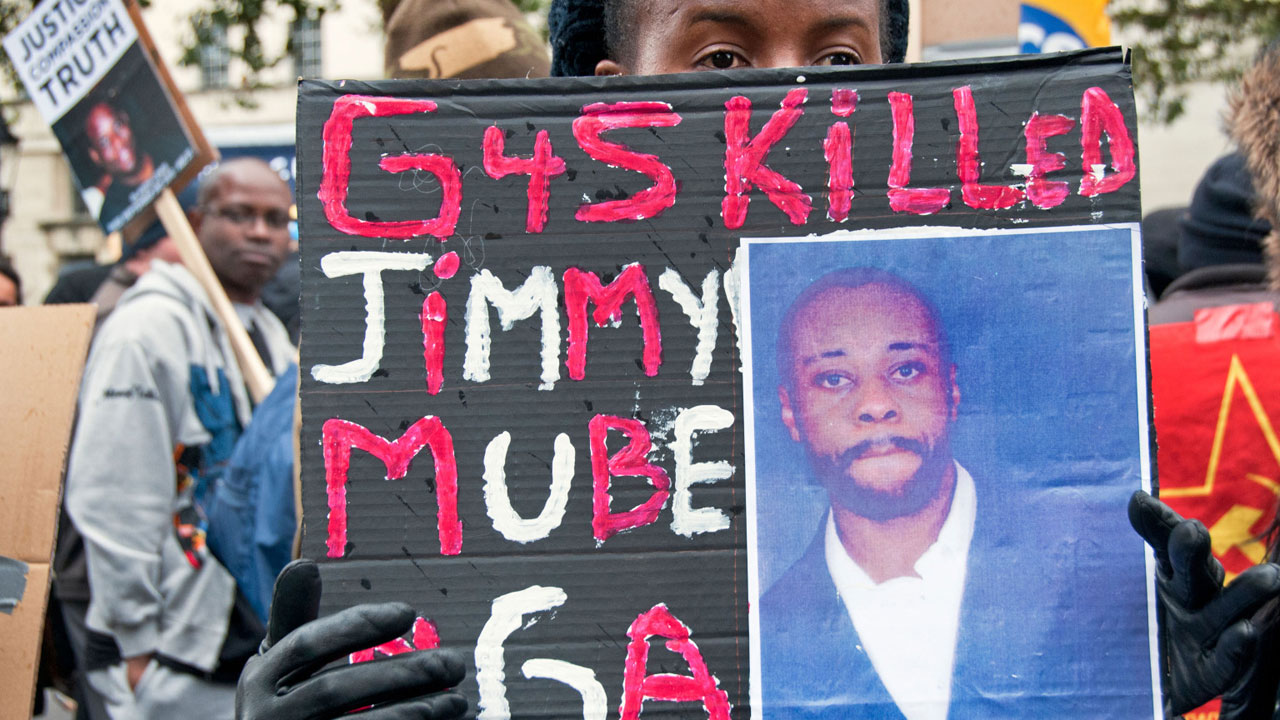“They’re going to kill me!” Jimmy Mubenga was heard screaming. The Angolan man was detained aboard a taxied airplane by guards from the G4S, the world’s largest, heavily criticized private security firm that the UK sometimes hires to carry out deportations. He restrained for more than half an hour. He was killed while he was restrained, allegedly when the guards cut off his air supply. It was later revealed that the two guards responsible for Mubenga’s death had sent each other a long string of racist text messages.
Earlier this week, a UK jury declared the death of Jimmy Mubenga “unlawful.” The jury pushed for a review of the “restraint techniques” used in the course of deportation.
The review of “restrain techniques” is misguided, Nadine El-Enany argues in The Guardian. She says that the review ignores the fact that deportation inherently requires a use of force and glosses over the necessity of physical violence, as well as the psychological damage caused to members of the deportee’s family and community. El-Enany discusses other cases of damage caused by abuse during deportation, like “the case of Mary, a Ugandan asylum seeker who was heavily restrained on a plane in view of her five children, is one of many. Crucially, Mary’s fellow passengers were told not to be concerned because she and her children were ‘criminals.’ It took three hours of handcuffed agony before a passenger on the plane intervened and she was released.”
We see cases after cases uniformed authority inflicting excessive force, violence and death on American citizens, but perhaps the problem with deportation lies deeper than barbaric, brute acts spotlighted by the media. These cases should be a call for all UK and US citizens to think about the violence inherent in deportation and what forcibly deporting immigrants truly achieves.
(Photo: Huffington Post UK)



